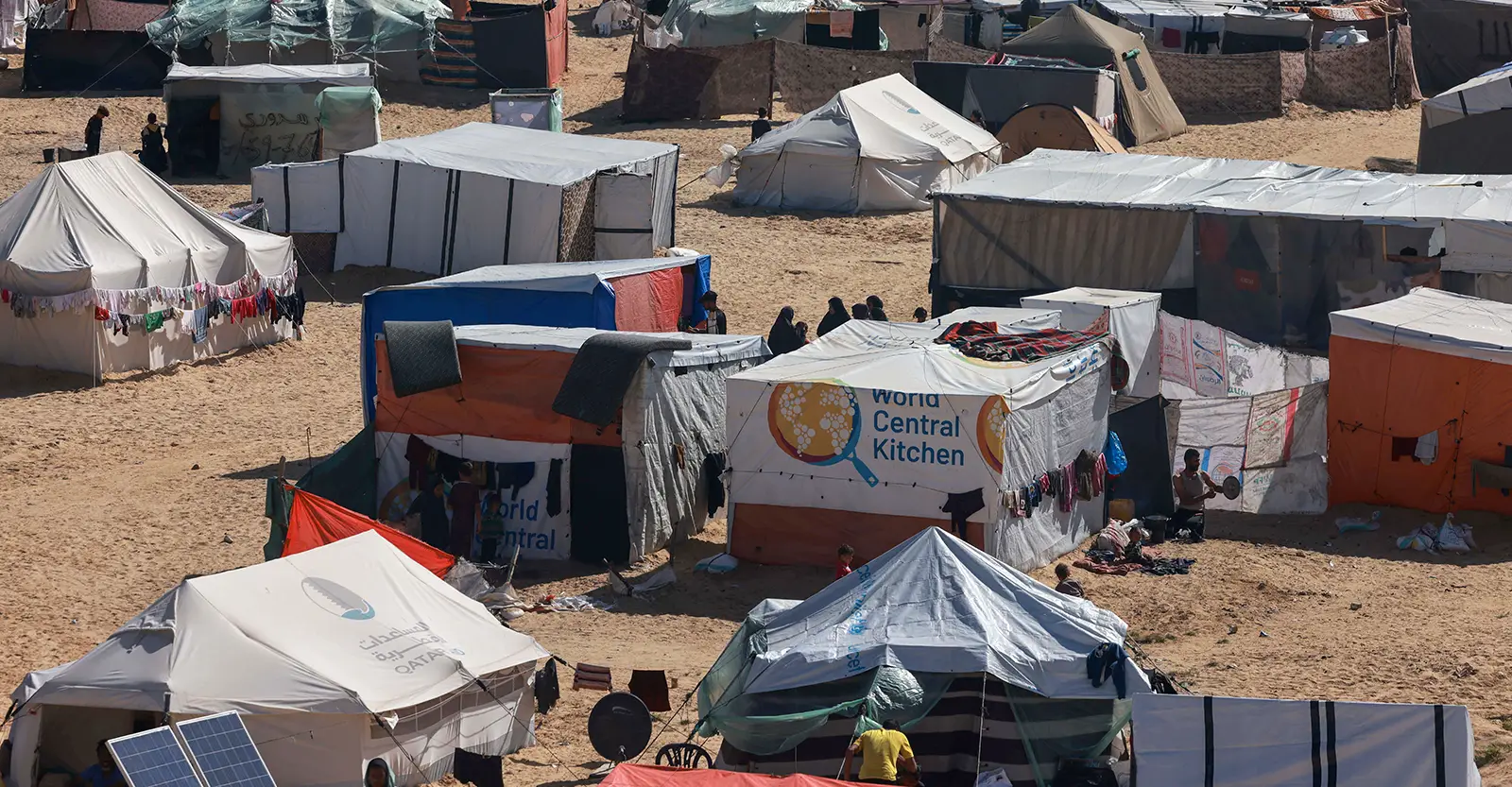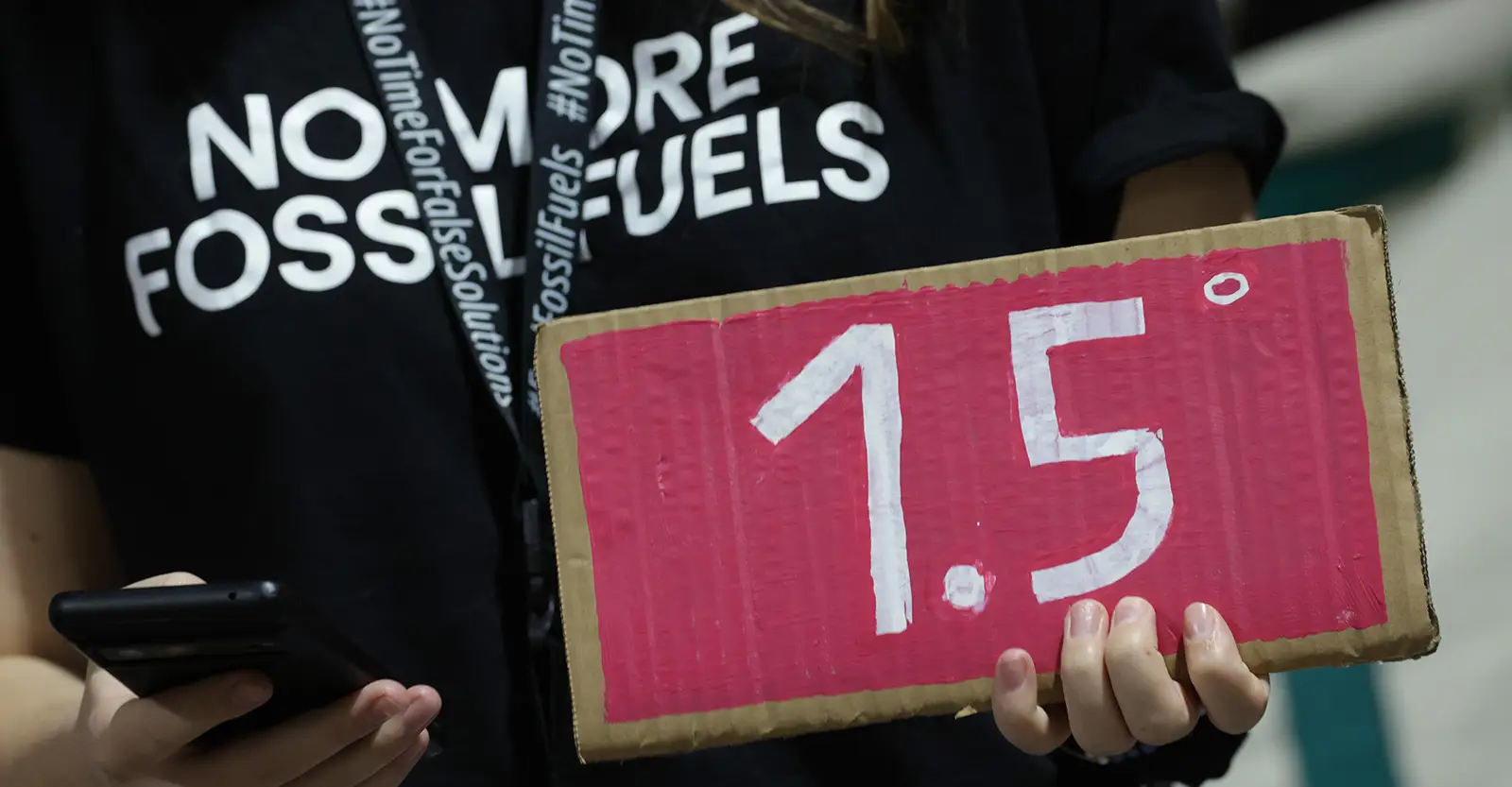Climate Change
Natural Ecosystems
From floods to forced migration, climate change is reshaping security risks worldwide.
Climate change is driving more than just extreme weather.
by Minderoo Foundation
As our planet warms and humidity rises, communities face growing health risks, disrupted livelihoods and mounting pressure to relocate. The impacts will be felt in every aspect of society, from economic stability to global security.
Climate-driven migration is already escalating, forcing millions to leave their homes due to unliveable conditions. This increases the risk of conflict, human trafficking and economic instability, while dwindling resources like water and food push communities to breaking point. The consequences are clear. Without urgent action, climate change will deepen inequality, economic shocks and geopolitical tensions. This presents a critical challenge for global leaders and policymakers:
- How do we create economic and security strategies that account for the migration and instability climate change will bring?
- How do we protect the most vulnerable communities before crisis becomes catastrophe?
Since 2023, we’ve committed more than US$44 million to humanitarian responses worldwide. Through the Lethal Humidity Global Council, we’re supporting critical research to quantify the cascading risks of extreme heat and advocating for Real Zero: the elimination of fossil fuels entirely, to address climate change at its root cause.
Climate change is forcing millions to flee their homes, amplifying risks of human trafficking, forced labour and exploitation - disproportionately impacting those most vulnerable.
In 2024, global displacement surged to 122 million people, while humanitarian aid fell far short of demand. The US$47 billion global aid budget was meant to assist 189.5 million people in need, yet less than half of the required funding was met.
The link between climate and displacement is undeniable. In 2022, climate-related disasters accounted for over half of the 60.9 million newly displaced people worldwide. Of the 1.5 billion people living in conflict-affected regions, 60 per cent are also among the most vulnerable to climate impacts.
Without urgent action, climate-driven migration will continue to rise, deepening global inequality and instability.

Caption: An internally displaced persons (IDP) camp in Rafah, in the southern Gaza strip. Credit: MOHAMMED ABED/AFP via Getty Images.
To ensure long-term economic and national security, we must advance practical solutions that eliminate dependence on fossil fuels and mitigate climate risks.
Providing humanitarian aid to those in need is essential as we tackle climate change, but it isn’t the solution to climate-driven instability. Relying on underfunded loss and damage mechanisms or tightening borders won’t address the root cause either. The only real solution is eliminating our dependency on fossil fuels.
We must address climate change at its root cause. Real Zero represents a transformative shift in how we address climate change by completely eliminating greenhouse gas emissions from fossil fuel use. This approach differs from Net Zero targets, where carbon offsets, unproven technologies like carbon capture and storage and over-inflated estimates of natural carbon sinks are used to create the appearance of reduced emissions without meaningful changes to business practices.
Without taking real action to substantially reduce fossil fuel use, as stipulated by the Intergovernmental Panel on Climate Change, the planet will continue to warm, exacerbating threats like deadly heatwaves and climate migration.

Caption: An activist protesting against fossil fuels at the UNFCCC COP29 Climate Conference in Baku, Azerbaijan. Credit: Sean Gallup via Getty Images.
The intersection of climate change and humanitarian crises has never been clearer. As extreme weather events become more frequent and severe, communities worldwide are facing unprecedented displacement, resource shortages and instability.
Minderoo has responded to global conflict and crisis by expanding our global humanitarian footprint through 13 new partnerships across Ukraine, Gaza, Syria and Papua New Guinea in 2024 - empowering civil society locally while supporting international humanitarian efforts.
- In Ukraine, we were the first philanthropic partner to support the World Food Programme and the Food and Agriculture Organization of the United Nations work to de-mine large swathes of Ukraine’s most productive agricultural land, removing a threat to human life and helping communities and farmers in the war-torn country get back on their feet.
- In Gaza, we supported the United Nations Office for Project Services (UNOPS) as the first and only non-state entity to fund the humanitarian corridor from Jordan into Gaza (UN2720). This and other partnerships have enabled the delivery of millions of meals across Gaza along with the provision of medical services and supplies.
- In Syria, we partnered with the White Helmets to ensure 27,000 people had access to emergency healthcare and ambulance services.
- In Papua New Guinea, following the Enga landslides we ensured clean water, sanitation and hygiene programs were available for 3,000 community members, alongside long-term peacebuilding and agricultural projects.
Minderoo will continue working with partners, learning from every response and acting quickly to get help and support to the people and communities who need it most.
Lethal Humidity Global Council: Extreme heat and humidity are pushing human survival limits - so we’ve convened global experts to help tackle this urgent crisis.
Supporting research on Lethal Humidity: With AU$6 million in new funding, we’re supporting important research to tackle the impacts of lethal humidity.
Crisis response and resilience: From delivering urgent food aid in Gaza to clearing deadly landmines in Ukraine, we’re taking supporting action where it’s needed most.
Ending modern slavery: The impact of climate change hits hardest those who are already in precarious situations, such as women, children, indigenous people and members of marginalised communities, increasing their vulnerability to modern slavery.